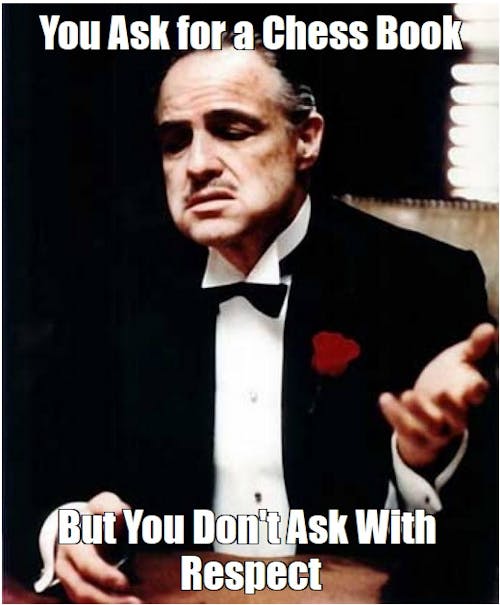Are you sure you want to delete your account?
(This will permanently delete all of your data - purchases, game scores, ratings, etc)
Change your username
Your current username is: guest
Change your account email address
Your current account email is:
Redeem your Fampay code here!
Use your Fampay code to get access to the Play Magnus Plus Membership!

Returning to Chess After a Long Break: A Checklist
I often get questions from people who have just retired, downshifted, or reconsidered their priorities and now have more free time on their hands than before. They recall that they used to have this fantastic hobby and wonder what they should do to make a smooth comeback to chess.
In 2004, I basically quit chess only to return to the game after meeting WGM Natalia Pogonina in 2008. The 5-year gap between tournaments felt like ages. I was extremely rusty and kept falling into time trouble every game, blundering pieces left and right. The result was rather harsh: I lost 36 rating points in the first event after the comeback in March 2009.
To be honest, the outcome wasn’t astonishing. I didn’t prepare for the tournament in any way and later had to make adjustments on the go, eventually leading to much better results.
After a second hiatus from 2015 to 2021, I decided to make yet another comeback. In fact, I am still in the transition process, so it’s reasonably easy for me to tell what the most relevant aspects are.
Tip #1. Assess your resources. How much time per week and what budget can you allocate for chess? If you genuinely want to improve, you will probably have to invest in chess accessories, software, trips, coaching, and so on.
Set a chess goal for yourself and evaluate whether you have everything you need to reach it. When in doubt, consult your chess pals or coach (see tip #4 for more details). If your goal is too far away and thus demotivating, break down the journey into small steps. For instance, if you aim for a title or a certain rating, you can keep track of every 100 points gained along the way and award yourself for every step made. 1500-1600-1700-1800-1900-2000 is a smoother path than 1500-2000, when you will be waking up each day and feeling stressed about your progress not being substantial enough.
Tip #2. Now that you know your goal, develop a training schedule. It is preferable to consistently dedicate some time to chess every day, even if you can’t spare much. Having the right routines and religiously following them is crucial for becoming a strong player or generally succeeding in any field.
Magnus Trainer is the perfect one-stop solution in this sense since the lessons and game levels there are fun, interactive, and reasonably short so that you can complete them in a single session.
Tip #3. Don’t walk alone. Unless you are a fanatic whose intrinsic motivation to succeed at chess is otherworldly, you could use some support from your relatives and friends. It is helpful to inform your inner circle about your decision to pursue chess more seriously so that there are fewer potential misunderstandings. Adults have many commitments, so you must sacrifice something to free up the space for chess! Hopefully, watching TV series will go down the drain, not your family life. Just kidding. It’s up to you to decide, of course!
Tip #4. Catch up. Since your information about the chess world has probably become outdated, it is recommendable to update yourself on the state of affairs by reconnecting with some training partners or your coach. They will tell you about the recent developments in theory, share links to the apps and software you should download, advise what books to read, where to play, etc.
Tip #5. Chess + traveling = ❤️. Even though the expression “chess tourist” has a negative connotation due to the Kasparov vs. Akopian beef, for many adults, the combination of playing chess and visiting a country they have never been to is a way to kill two birds with one stone. You may want to check if there are interesting open tournaments in the countries on your wish list and plan accordingly.
Tip #6. Tactics every day keeps the patzer away. It would be great to create a daily routine of solving exercises for 30-60 minutes. Sounds like too much work? Start with 15 minutes then! Anything is better than nothing. Experiment with timed/untimed modes. Find a healthy mix of tasks that require a powerful combinational vision and those that are tackled by rigorous calculations. Check out the solutions and realize what you did wrong and why. Tactics Frenzy is a fantastic tool for becoming a tactical wizard. It has all the functionality mentioned above and much more.
Tip #7. Give your openings an overhaul. If you have more time at your disposal than previously, you may want to add new ambitious openings to your arsenal. Or conversely, if you don’t have that much time and your memory is no longer as good as it was in your youth, you may have to find a quick fix for this in the form of opening setups that can be played without excessive analysis and memorization.
At this stage, unless you are a professional player, it isn’t recommendable to book up too much. Finding a brilliant novelty is nice, but after a long break, you can expect silly blunders to be a more critical factor that determines the outcome of your games. Overall, the opening series from Magnus Trainer should allow you to form a solid foundation upon which you can build up material as you play more and gain additional experience.
Tip #8. Make sure you are fit and healthy before entering an event. The psychological and physical pressures at chess tournaments are immense. I have seen players get strokes over the board, and there have been cases of people dying during the game due to one medical condition or the other. Please consult a doctor beforehand, especially if you are in the danger zone age-wise and if you have any serious chronic diseases.
Tip #9. Enjoy the process of playing the game. Don’t overdramatize things; avoid being too hard on yourself if your play doesn’t live up to your expectations! Your performances should improve eventually as long as you are passionate about the process and having fun. 🤗

